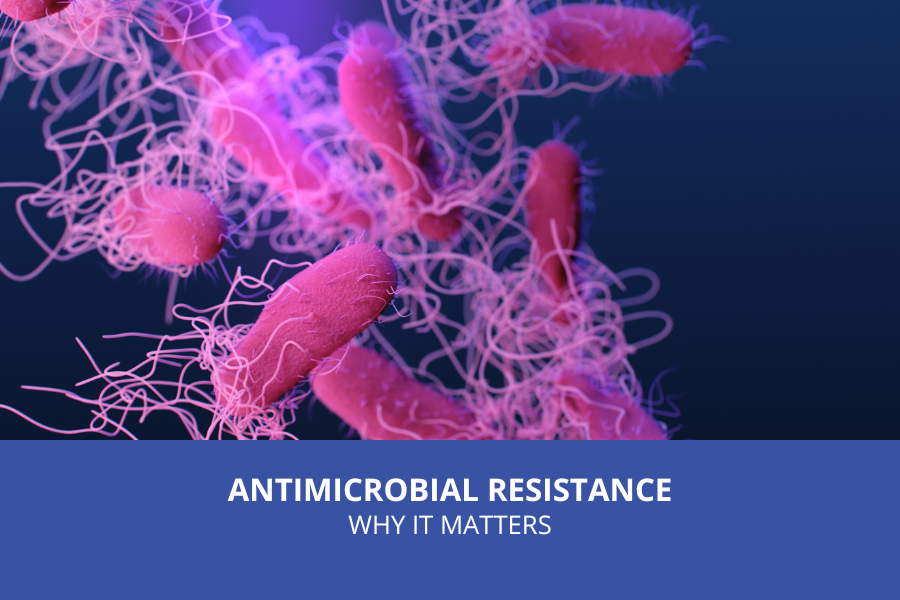Antimicrobial resistance (AMR) happens when germs like bacteria and fungi develop the ability to defeat the drugs designed to kill them. That means the germs are not killed and continue to grow. Resistant infections can be difficult, and sometimes impossible, to treat. Antimicrobial resistance has the potential to affect people at any stage of life, as well as the healthcare, veterinary, and agriculture industries. If antibiotics and antifungals lose their effectiveness, then we lose the ability to treat infections and control these public health threats. This makes it one of the world’s most urgent public health problems.1
Comprehensive estimates of modern global and regional AMR burden were published by The Lancet using predictive statistical modeling on 471 million individual records or isolates covering 7585 study-location-years. The deaths and disability-adjusted life years attributable to and associated with bacterial AMR for 23 pathogens and 88 pathogen–drug combinations in 204 countries were generated based on the comprehensive analysis of data from 2019.2
Estimates indicate that bacterial AMR is a health problem whose magnitude is at least as large as major diseases such as HIV and malaria, and potentially much larger. The global burden associated with drug- resistant infections in 2019 was estimated at 4.95 million deaths of which 1.27 million deaths were directly attributable to drug resistance. In other words, if all drug-resistant infections were replaced by no infection, 4.95 million deaths could have been prevented in 2019, whereas if all drug-resistant infections were replaced by drug-susceptible infections, 1.27 million deaths could have been prevented.2
To learn more about this study use the following link: https://www.thelancet.com/journals/lancet/article/PIIS0140-6736(21)02724-0/fulltext
The CDC COVID-19: U.S. Impact on Antimicrobial Resistance, Special Report 2022 concluded that the threat of antimicrobial-resistant infections is not only still present but has gotten worse. During the COVID-19 pandemic, United States healthcare facilities saw more healthcare-associated, antimicrobial-resistant infections, especially in hospitals. Hospitals treated sicker patients who required more frequent and longer use of medical devices like catheters and ventilators. Hospitals also experienced personal protective equipment supply challenges, staffing shortages, and longer patient visits.3,4
To fight antimicrobial resistance, the CDC calls for the continued aggressive action to:
- Prevent infections in the first place.
- Improve antibiotic and antifungal use to slow the development of resistance.
- Stop the spread of resistance when it does develop.5
At Genesis Reference Laboratories, we are committed to improving antibiotic stewardship. The use of polymerase chain reaction (PCR) allows for the accurate identification of pathogens and delivery of pathogen detection results with turnaround times that are generally faster than that seen with traditional culture and sensitivity methods. The integration of Arkstone OneChoice Reports weighs dozens of variables, including the source of infection, the organisms and resistance genes detected, patient allergies, age, and sex, to arrive at a focused treatment recommendation which target the most relevant infection with the lowest risk to the patient.6 This combination of results and recommendations can be important for antibiotic stewardship efforts by slowing the development of resistance and stopping its spread when it develops.
References
- https://www.cdc.gov/drugresistance/about.html
- https://www.thelancet.com/journals/lancet/article/PIIS0140-6736(21)02724-0/fulltext
- https://www.cdc.gov/drugresistance/covid19.html
- https://www.cdc.gov/drugresistance/pdf/covid19-impact-report-508.pdf
- https://www.cdc.gov/drugresistance/actions-to-fight.html
- https://www.arkstonemedical.com/onechoice_report

